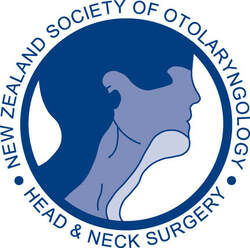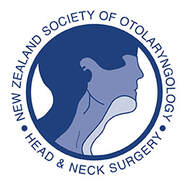Professor Vincent Vander PoortenClinical Head, Otorhinolaryngology, Head and Neck Surgery, University Hospitals Leuven; Section Head, Department of Oncology, Section Head and Neck Oncology, KU Leuven- Belgium
Secretary General of the ESGS – MSGS Vincent Vander Poorten, MD, PhD, MSc (Epid) is Consultant, Full Professor and Clinical Head of Otorhinolaryngology, Head and Neck Surgery at the University Hospitals Leuven, Leuven, Belgium. He is section head of the section Head and Neck Oncology of the Department of Oncology of the faculty of Medicine at KU Leuven.
|
He is a member of the Netherlands Epidemiological Society, The Royal Belgian Society for Otorhinolaryngology, Head and Neck Surgery, the Netherlands Society for Otorhinolaryngology and Cervicofacial Surgery, AHNS and its Endocrine Section, Flemish Head and Neck Society, IAOO, IHNSG, IFHNOS, ESGS, EAFPS, IAES, AOCMF, BAHNO, Asia-Pacific society of Thyroid Surgery (APTS) and the EHNS. Honorary Member of the South African Society for Otorhinolaryngology Head and Neck Surgery.
He is a member of the editorial board of the European Journal of Surgical Oncology, Frontiers in Oncology, Frontiers in Surgery, B-ENT and Journal of Head and Neck Physicians and Surgeons
His area of expertise is head and neck oncology and surgery, with a specific focus on salivary gland and thyroid surgery, laser microendoscopic surgery, transoral robotic surgery, endoscopic and external approaches to the anterior skull base and pediatric head and neck surgery.
PUBLICATIONS:
https://lirias.kuleuven.be/cv?u=U0035358&allItems=true&layout=IEEE-style&link=true
He is a member of the editorial board of the European Journal of Surgical Oncology, Frontiers in Oncology, Frontiers in Surgery, B-ENT and Journal of Head and Neck Physicians and Surgeons
His area of expertise is head and neck oncology and surgery, with a specific focus on salivary gland and thyroid surgery, laser microendoscopic surgery, transoral robotic surgery, endoscopic and external approaches to the anterior skull base and pediatric head and neck surgery.
PUBLICATIONS:
https://lirias.kuleuven.be/cv?u=U0035358&allItems=true&layout=IEEE-style&link=true
Central Compartment Neck Dissection-A Matter of Debate
This lecture will start from an anatomical definition of “the central compartment”, over the preoperative evaluation, to describe the stepwise technique of central compartment dissection (CCD) with a focus on avoiding complications. Then the scientific body behind the controversy will be presented in an effort to answer the questions when and why to perform a CCD, both in the therapeutic and prophylactic setting, as well as for medullary thyroid cancer and the more frequent differentiated thyroid cancers. The audience will get a clear view of the areas of clarity and the areas of remaining controversy, and the presenter will focus on the KU Leuven individualized approach to the thyroid cancer patient.
This lecture will start from an anatomical definition of “the central compartment”, over the preoperative evaluation, to describe the stepwise technique of central compartment dissection (CCD) with a focus on avoiding complications. Then the scientific body behind the controversy will be presented in an effort to answer the questions when and why to perform a CCD, both in the therapeutic and prophylactic setting, as well as for medullary thyroid cancer and the more frequent differentiated thyroid cancers. The audience will get a clear view of the areas of clarity and the areas of remaining controversy, and the presenter will focus on the KU Leuven individualized approach to the thyroid cancer patient.
Salivary Gland Cancer - State of the Art - and Progress
This lecture will start by giving a state of the art in molecular biological and pathological factors that are important in diagnosis and prognosis, of a selection of major histological types of salivary gland cancer (adenoid cystic carcinoma, salivary duct carcinoma and carcinoma ex pleomorphic adenoma, as well as polymorphous adenocarcinoma). To obtain this information in a preoperative setting, fine needle aspiration cytology and thru-cut biopsy are compared based on the existing scientific body of evidence. Treatment discussion will focus on (1) surgery for parotid cancer, both for the primary (need to perform total parotidectomy?) and the neck (elective neck dissection / therapeutic neck dissection), (2) advances in radiotherapy (protons and carbon ions) and (3) chemotherapy in the palliative and the adjuvant setting. In this way the audience will get a quick update of a few important elements of the progress that has recently been made in this difficult field of cancer of the head and neck.
This lecture will start by giving a state of the art in molecular biological and pathological factors that are important in diagnosis and prognosis, of a selection of major histological types of salivary gland cancer (adenoid cystic carcinoma, salivary duct carcinoma and carcinoma ex pleomorphic adenoma, as well as polymorphous adenocarcinoma). To obtain this information in a preoperative setting, fine needle aspiration cytology and thru-cut biopsy are compared based on the existing scientific body of evidence. Treatment discussion will focus on (1) surgery for parotid cancer, both for the primary (need to perform total parotidectomy?) and the neck (elective neck dissection / therapeutic neck dissection), (2) advances in radiotherapy (protons and carbon ions) and (3) chemotherapy in the palliative and the adjuvant setting. In this way the audience will get a quick update of a few important elements of the progress that has recently been made in this difficult field of cancer of the head and neck.




